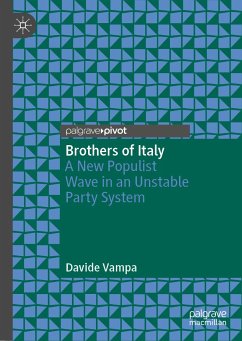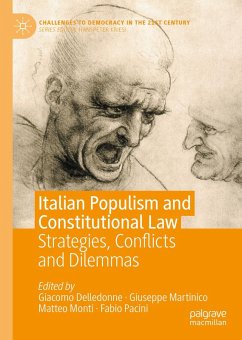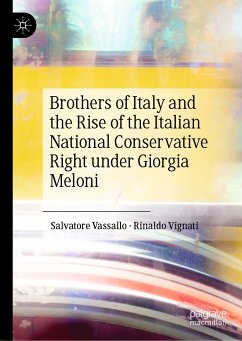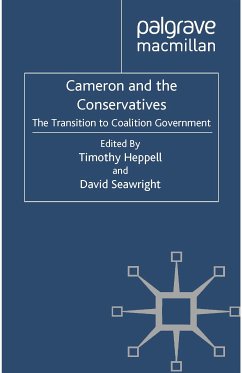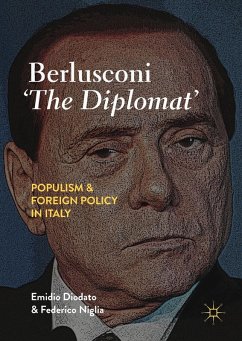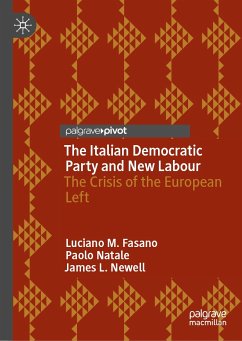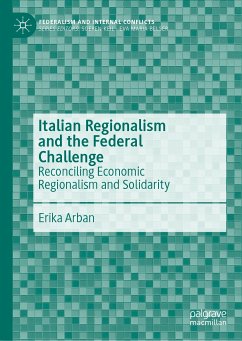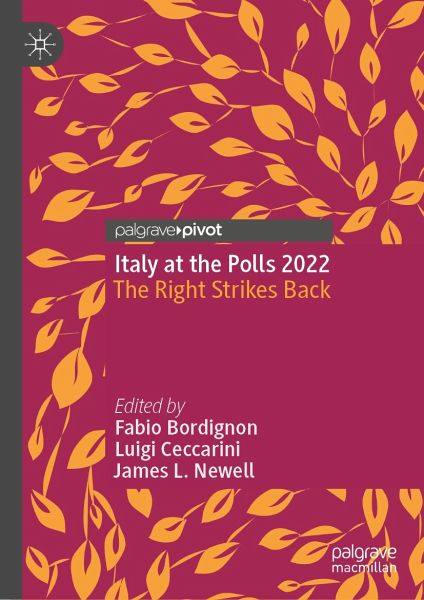
Italy at the Polls 2022 (eBook, PDF)
The Right Strikes Back
Redaktion: Bordignon, Fabio; Newell, James L.; Ceccarini, Luigi
Versandkostenfrei!
Sofort per Download lieferbar
40,95 €
inkl. MwSt.
Weitere Ausgaben:

PAYBACK Punkte
20 °P sammeln!
Italian politics has changed course yet again. Thanks to the outcome of the 2022 general election, a coalition dominated, for the first time, by a party of the far right has taken office under Giorgia Meloni, the first woman to serve as prime minister in Italy's republican history. Italy has always been a kind of 'political laboratory' for Western democracies - one in which new political phenomena have developed with considerable potency. Consequently, the electoral analyses presented in this book make it possible for the reader to understand the challenges and related consequences that establ...
Italian politics has changed course yet again. Thanks to the outcome of the 2022 general election, a coalition dominated, for the first time, by a party of the far right has taken office under Giorgia Meloni, the first woman to serve as prime minister in Italy's republican history. Italy has always been a kind of 'political laboratory' for Western democracies - one in which new political phenomena have developed with considerable potency. Consequently, the electoral analyses presented in this book make it possible for the reader to understand the challenges and related consequences that established democracies are currently facing, beyond Italy.
Dieser Download kann aus rechtlichen Gründen nur mit Rechnungsadresse in A, B, BG, CY, CZ, D, DK, EW, E, FIN, F, GR, HR, H, IRL, I, LT, L, LR, M, NL, PL, P, R, S, SLO, SK ausgeliefert werden.



